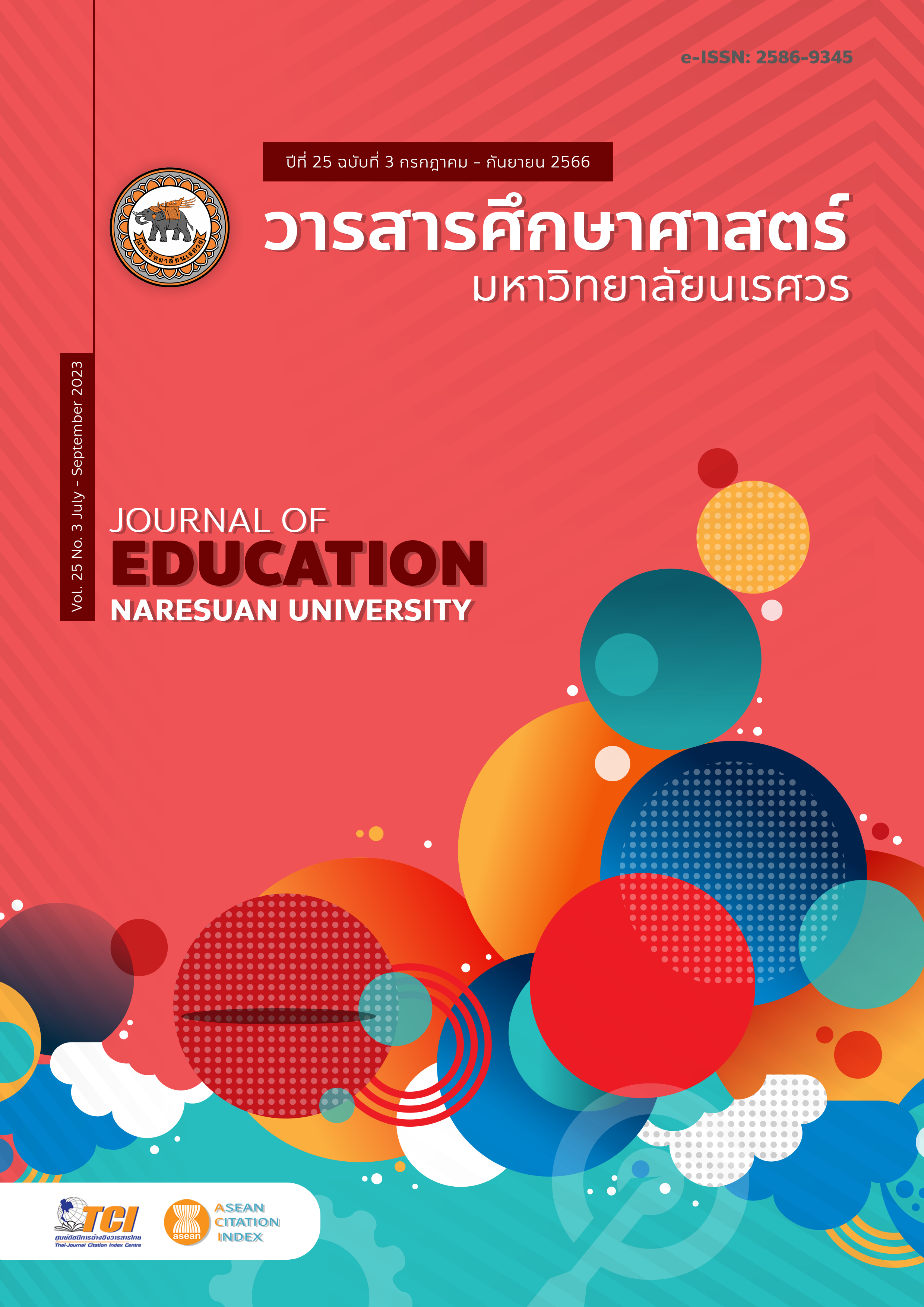THE EFFECTS OF USING ONLINE LEARNING WITH GOOGLE SITE PROGRAM ON COMPUTER LAWS FOR UNDERGRADUATE STUDENTS
Main Article Content
Abstract
The objectives of this research were to: 1) develop and assess the quality of an online lesson with Google site on computer Laws for undergraduate students, 2) implement and compare students’ achievement before and after the implementation of the online lesson with Google site on Computer Laws, and 3) study students' satisfaction towards the online lesson with Google site on Computer Laws. The sample consisted of 49 students (four-year-curriculum) from the department of Educational Technology and Communication, Faculty of Education Naresuan University who studied in the first semester of 2020 academic year. The research instruments consisted of 1) online lessons with Google site on Computer Laws, 2) online lesson evaluation form 3) learning achievement test, 4) students’ satisfaction assessment questionnaire. Data were analyzed using descriptive statistics, and t-test dependable. The study found that 1) The results of online lessons with Google site program on computer law and quality assessment revealed that the developed lesson was at the highest level of appropriateness ( = 4.69, SD = 0.35). 2) Students’ academic achievement after the implementation of the online lessons with Google site program on computer law was significantly higher than before at .05 level which meets the established hypothesis. 3) Students’ satisfaction towards the online lessons with the Google site program was at the highest level (
= 4.84, SD = 0.36).
Article Details

This work is licensed under a Creative Commons Attribution-NonCommercial-NoDerivatives 4.0 International License.
The owner of the article does not copy or violate any of its copyright. If any copyright infringement occurs or prosecution, in any case, the Editorial Board is not involved in all the rights to the owner of the article to be performed.
References
Dewilaphorn, P. (2020). Organizational behavior. Bangkok: Wirat Education.
Khanthree. (2015). Self-learning. Retrieved May 2, 2020, from https://www.sciencedirect.com.
Laohajaratsaeng, T. (2002). Design e-Learning: Principles of Design and Creation of Web for Teaching and Learning. Bangkok: Arun Printing.
Nakongsri, N. (2010). Creating lessons on the internet network with project-based learning management to create multimedia with Adobe Flash CS3 (Master thesis). Bangkok: King Mongkut's University of Technology Thonburi.
Namkong, P. (2015). Management of Buddhism learning. for students Elementary school, level 1 using virtual image model technology. Bangkok: King Mongkut's University of Technology Thonburi.
Niyaso, S. (2011). The development of e-learning lessons in home economics professional course (Master thesis). Bangkok: Rajamangala University of Technology.
Phiema, N. (2017). Application development with virtual reality technology to promote Learn arts and culture and wisdom on the topic of giving alms to the Ban Bat community. Bangkok: Suan Dusit University.
Prasarnwong, W. (2007). Online lessons on physics and chemistry in electrical technology. Ubon Ratchathani: Ubon Ratchathani Rajabhat University.
Thappia, P. (2012). The development of a virtual world mixed media series that combines the real world with the structure and function of the heart for students in mathayom 5 (Master thesis). Phitsanulok: Naresuan University.
Thienthong, M. (2002). Phimphalak, Bangkok: Department of Computer Education, Faculty of Education, King Mongkut's Institute of Technology North Bangkok.


